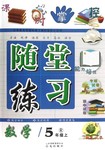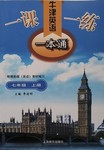

词组短语
1.引起,造成
2.好转,接人,学会,提高,(风)变大
3.保护,监视
4.事实上
5.某人能够到的地方
6.在一定程度上
7.是...的原因
8.从…到…之间变化
9.持有看法
10.最重要的是
 课时掌控随堂练习系列答案
课时掌控随堂练习系列答案 一课一练一本通系列答案
一课一练一本通系列答案 浙江之星学业水平测试系列答案
浙江之星学业水平测试系列答案科目:高中英语 来源:2016-2017学年河南顶级名校高三10月第一次月考英语卷(解析版) 题型:单项填空
It is reported that more than half of ________ surveyed on the website say they are content with their current life.
A. whomB. themC. onesD. those
查看答案和解析>>
科目:高中英语 来源:2016-2017学年陕西西北大学附中高二上期中考英语卷(解析版) 题型:阅读理解
The Healthy Habits Survey(调查)shows that only about one third of American seniors have correct habits. Here are some findings and expert advice.
1. How many times did you brush your teeth yesterday?
Finding:A full 33% of seniors brush their teeth only once a day.
Step:Remove the 300 types of bacteria in your mouth each morning with a battery-operated toothbrush. Brush gently for 2 minutes, at least twice a day.
2. How many times did you wash your hands or bathe yesterday?
Finding:Seniors, on average, bathe fewer than 3 days a week. And nearly 30%wash their hands only 4 times a day-half of the number doctors recommend.
Step:We touch our faces around 3,000 times a day-often inviting germs(病菌)to enter our mouth, nose, and eyes. Use toilet paper to avoid touching the door handle. And, most important, wash your hands often with hot running water and soap for 20 seconds.
3. How often do you think about fighting germs?
Finding:Seniors are not fighting germs as well as they should.
Step:Be aware of germs. Do you know it is not your toilet but your kitchen sponge(海绵)that can carry more germs than anything else? To kill these germs, keep your sponge in the microwave for 10 seconds.
1.What is found out American seniors?
A. Most of them have good habits.
B. Nearly 30% of them bathe three days a week .
C. All of them are fighting germs better than expected .
D. About one third of them brush their teeth only once a day
2.Which of the following is true according to the text ?
A. We should keep from touching our faces.
B. There are less than 300 types of bacteria in the mouth .
C. A kitchen sponge can carry more germs than a toilet .
D. We should wash our hands before touching a door handle .
3.The text probably comes from .
A. a guide book
B. a popular magazine
C. a book review
D. an official document
查看答案和解析>>
科目:高中英语 来源:2016-2017学年新疆兵团农二师华山中学高一上期中英语卷(解析版) 题型:阅读理解
Parents have widely different views on the problem of pocket money. Four new fathers were asked this question and this is how they answered.
Ashish Khanna: Although many argue that pocket money helps develop children’s sense of value, I don’t agree. I wouldn’t give my child any pocket money. First of all, I never got pocket money and I seem to have a good value for money. If my child ever needed something and I felt it was a reasonable(合理)request , I would buy it for him .
Sharad Sanghi: No, I wouldn’t give my child pocket money because I don’t want to create the perception(观念) of “ her ” money and “ my ” money . Besides, if I refuse to buy her something that I think is bad for her, she may buy it with her pocket money on the sly. In this way, I would lose control over my child’s requests. I feel it also encourages children to care more about money than anything else. I don’t want my child to start judging(评判) other children by the amount of money or pocket money they have.
Rakesh Shah: Yes, I would give my child pocket money. I feel that children should learn to spend money intelligently and not go overboard spending. They will learn what their limitations(限制)are and feel the difficulty when they have to pay for something that is over their own pockets .
Rajiv Patel: Yes, I would give my child pocket money because it is important that she learns to manage money. I will give her a fixed amount every month and if she spends the money before the month is over, then she will learn a lesson and not spend money so freely.
Vikram Desai: Yes, I would certainly give my child pocket money. But I would not give it to him on a weekly or monthly basis. He would have to earn it. If he helped me finish some of my jobs or helped his mother with housework, I would reward him. This helps him realize that “money does not grow on trees” and it requires hard work to earn money.
1.Ashish Khanna may agree that ___________.
A. he was given too much pocket money when young
B. he can take much control of his child by money
C. he will buy anything he thinks his child really needs
D. pocket money helps children develop a good value for money
2.The underlined phrase “on the sly” in Paragraph 3 is closest in meaning to ___.
A. for free B. at a lower price
C. happily D. secretly
3.What do Rakesh Shah and Rajiv Patel have in common?
A. They want their children to learn to manage money.
B. They ask their children to get pocket money by working.
C. They teach their children the difficulty of making money.
D. They allow their children to spend money freely.
4.According to Vikram Desai, children’s earning money by themselves makes them know that ___.
A. money is not easy to get
B. money can be gotten from the trees
C. one can get lots of money if he / she works hard
D. money is not so important for people nowadays
5.Who would give his child pocket money every month ?
A. Ashish Khanna B. Sharad Sanghi
C. Rakesh Shah D. Rajiv Patel
查看答案和解析>>
科目:高中英语 来源:2017届河南鹤壁高中高三上期第二次段考英语卷(解析版) 题型:阅读理解
Facial expressions carry meaning that is determined by situations and relationships. For example, in American culture the smile is in general an expression of pleasure. Yet it also has
other uses. A woman’s smile at a police officer does not carry the same meaning as the smile she gives to a young child. A smile may show love or politeness. It can also hide true feelings. It often causes confusion across cultures. For example, many people in Russia smiling at strangers in public to be unusual and even improper. Yet many Americans smile freely at strangers in public places (although this is less common in big cities). Some Russians believe that Americans smile in the wrong places; some Americans believe that Russians don’t smile enough. In Southeast Asian culture, a smile is frequently used to cover painful feelings. Vietnamese people may tell a sad story but end the story with a smile.
Our faces show emotions, but we should not attempt to “read” people from another culture as we would “read” someone from our own culture. The fact that members of one culture do not
express their emotions as openly as do members of another does not mean that they do not experience emotions. Rather, there are cultural differences in the amount of facial expressions
permitted. For example, in public and in formal situations many Japanese do not show their emotions as freely as Americans do. When with friends, Japanese and Americans seem to show
their emotions similarly.
It is difficult to generalize about Americans and facial expressiveness because of personal and cultural differences in the United States. People from certain cultural backgrounds in the United States seem to be more facially expressive than others. The key is to try not to judge people whose ways of showing emotion are different. If we judge according to our own cultural habits, we may make the mistake of “reading” the other person incorrectly.
1.What does the smile usually mean in the U.S.?
A. Love. B. Politeness.
C. Joy. D. Thankfulness
2.The author mentions the smile of the Vietnamese to prove that smile can ___ .
A. show friendliness to strangers.
B. be used to hide true feelings .
C. be used in the wrong places.
D. show personal habits.
3.What should we do before attempting to “read” people?
A. Learn about their relations with others.
B. Understand their cultural backgrounds.
C. Find out about their past experience.
D. Figure out what they will do next.
4. What would be the best title ?
A. Cultural Differences
B. Smiles and Relationship
C. Facial Expressiveness
D. Habits and Emotions
查看答案和解析>>
科目:高中英语 来源:2017届黑龙江哈尔滨六中高三上期中考英语卷(解析版) 题型:单项填空
The match was cancelled because most of the members _____ a match without a standard court.
A. objected to having B. were objected to have
C. objected to have D. were objected to having
查看答案和解析>>
科目:高中英语 来源:2017届黑龙江哈尔滨六中高三上期中考英语卷(解析版) 题型:单项填空
Clinical evidence began to ______,suggesting that the new drugs had a wider range of useful activities than had been predicted from experiments in animals.
A. operate B. strengthen
C. approve D. accumulate
查看答案和解析>>
科目:高中英语 来源:2016-2017学年贵州遵义四中高一上期中考英语卷(解析版) 题型:短文改错
文中共有10处语言错误,每句中最多有两处。每处错误仅涉及一个单词的增加、删除或修改。
增加:在缺词处加一个漏字符号(∧),并在其下面写出该加的词。
删除:把多余的词用斜线(\)划掉。
修改:在错的词下画一横线,并在该词下面写出修改后的词。
注意:1.每处错误及其修改均仅限一词。
2.只允许修改10处,多者(从第11处起)不计分。
Good morning, ladies and gentlemen. May I have your attention, please?
I have something important to tell you. Our plan to visit the countryside has to put off till tomorrow because the rain. Now I will introduce their plan for today. we would go to visit a middle school by bus on this morning. A school has a history of 85 years. Then we’ll go to an exhibition of some new invention. I think it will be interested. The bus will wait at the gate of the hotel. We’ll set out at 8:30. Taking everything necessary with you and please get on the bus on time. You are welcome to ask me unless you still have any questions. Thank you for listening.
查看答案和解析>>
科目:高中英语 来源:2016-2017学年吉林长春外国语校高二上期中考英语卷(解析版) 题型:信息匹配
1.drift A. offspring
2.migrate B. likely to be very good or successful in the future
3.ancestor C. make something increase over a period of time
4.descendant D. using new methods or ideas
5.fragrance E. move slowly on water or in the air
6.accumulate F. move from one country and settle in another
7.alternative G. guess the cost, size, value, etc of something
8.innovative H. a person who is from an earlier time
9.estimate I. a sweet or pleasant odor; a scent
10.promising J. different from the one you already have
查看答案和解析>>
湖北省互联网违法和不良信息举报平台 | 网上有害信息举报专区 | 电信诈骗举报专区 | 涉历史虚无主义有害信息举报专区 | 涉企侵权举报专区
违法和不良信息举报电话:027-86699610 举报邮箱:58377363@163.com